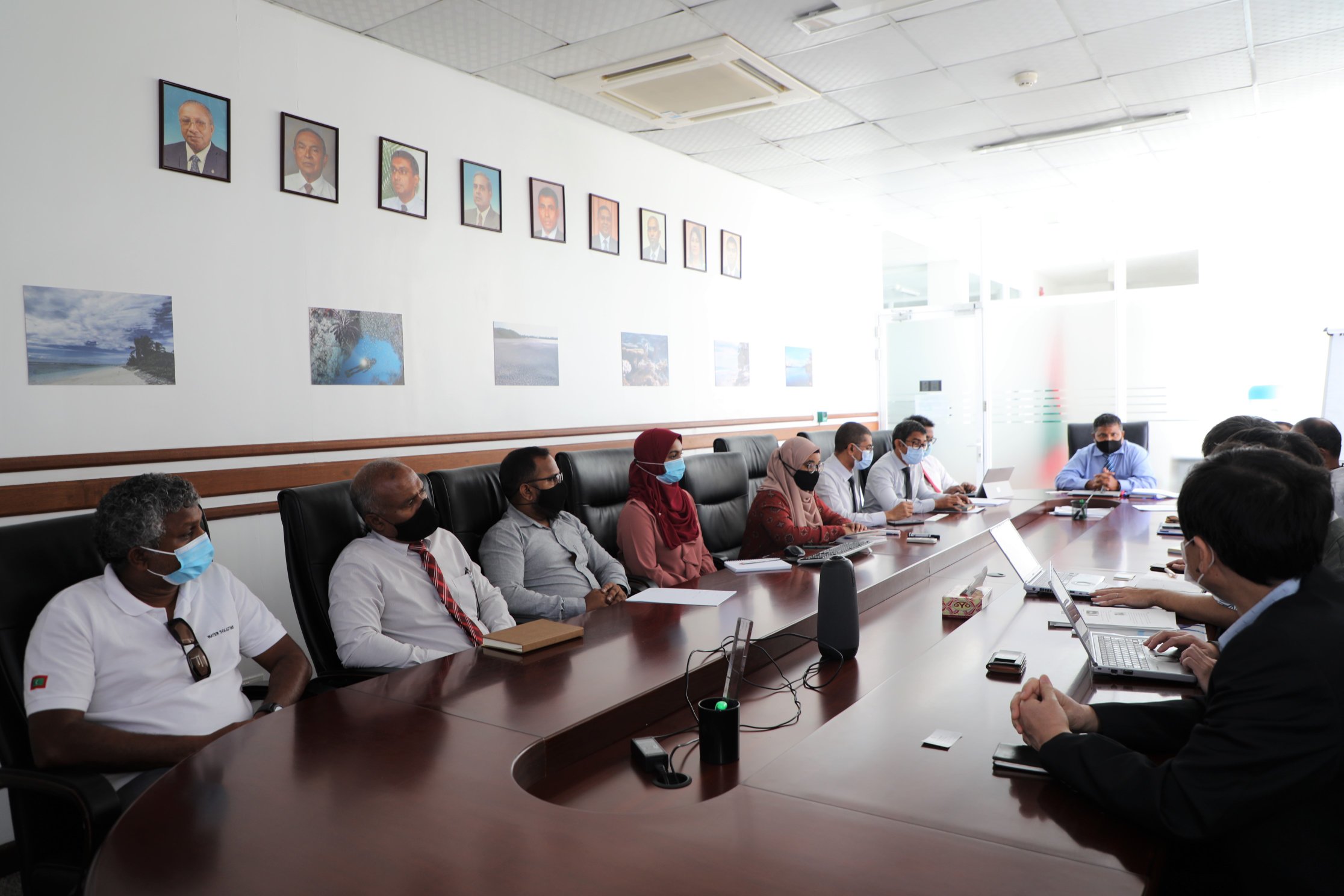Male’, Maldives – The Minister of Environment and Energy Dr. Hussain Rasheed and members of Maldives Water and Sewerage Company (MWSC) met with a team from Japanese industrial and engineering corporation Hitachi Zosen a to discuss possible areas of collaboration in utilizing Hydrogen for energy production in Maldives.
No specifics on what was discussed today has been publicized yet, however, looking at Hitachi Zosen’s other projects globally, green hydrogen energy production was likely discussed.
There are three types of hydrogen. Gray hydrogen comes from fossil fuels, which emit carbon dioxide in the process of extracting hydrogen from coal, oil, or natural gas, cancelling out any benefit to the environment.
Blue hydrogen is made the same way, but the Co2 is captured from emissions from existing traditional power plants, which reduces overall emissions. Carbon-free green hydrogen uses renewable energy to produce hydrogen from water.
Such projects have been planned elsewhere, with renewable energy generated offshore either by wind or solar power, which is then used to power seawater-to-hydrogen electrolysis, with the hydrogen stored and transported for use in supported machines.
This comes after the World Bank’s Directors approved a $107.4 million project to help Maldives accelerate its transition to renewable energy and support sustainable recovery.
The project is planned to support training of staff at the relevant authorities and utility companies. It will also explore the potential of other renewable energy sources like wind and hydrogen, as well as new technologies such as EV charging stations and vehicle-to-grid technologies.
Maldives has also been preparing to build the worlds largest floating solar power system with assistance from the World Bank. A 36 megawatt floating solar PV hybrid system is to be built to power the greater Male’ region,
Under the same USD 313 Million project, various islands in the country are planned to be powered by offshore solar panels capable of generating 11 megawatts.
Renewable energy, and emission reduction efforts have increased in the Maldives as of late, with companies such Bank of Maldives (BML), encouraging such projects among residents with their Islamic branch introducing Green Financing options for individuals and businesses seeking to fund environment friendly projects such as solar power generation or investments in energy efficient products.
Environment Minister Dr. Hussain Rasheed revealed, at the end of last December that he has submitted Maldives’ “most ambitious” Nationally Determined Contribution (NDC), that aims reduce emissions by 26% and to reach Net Zero Emissions by 2030 on the condition that financial and technology support is received.





